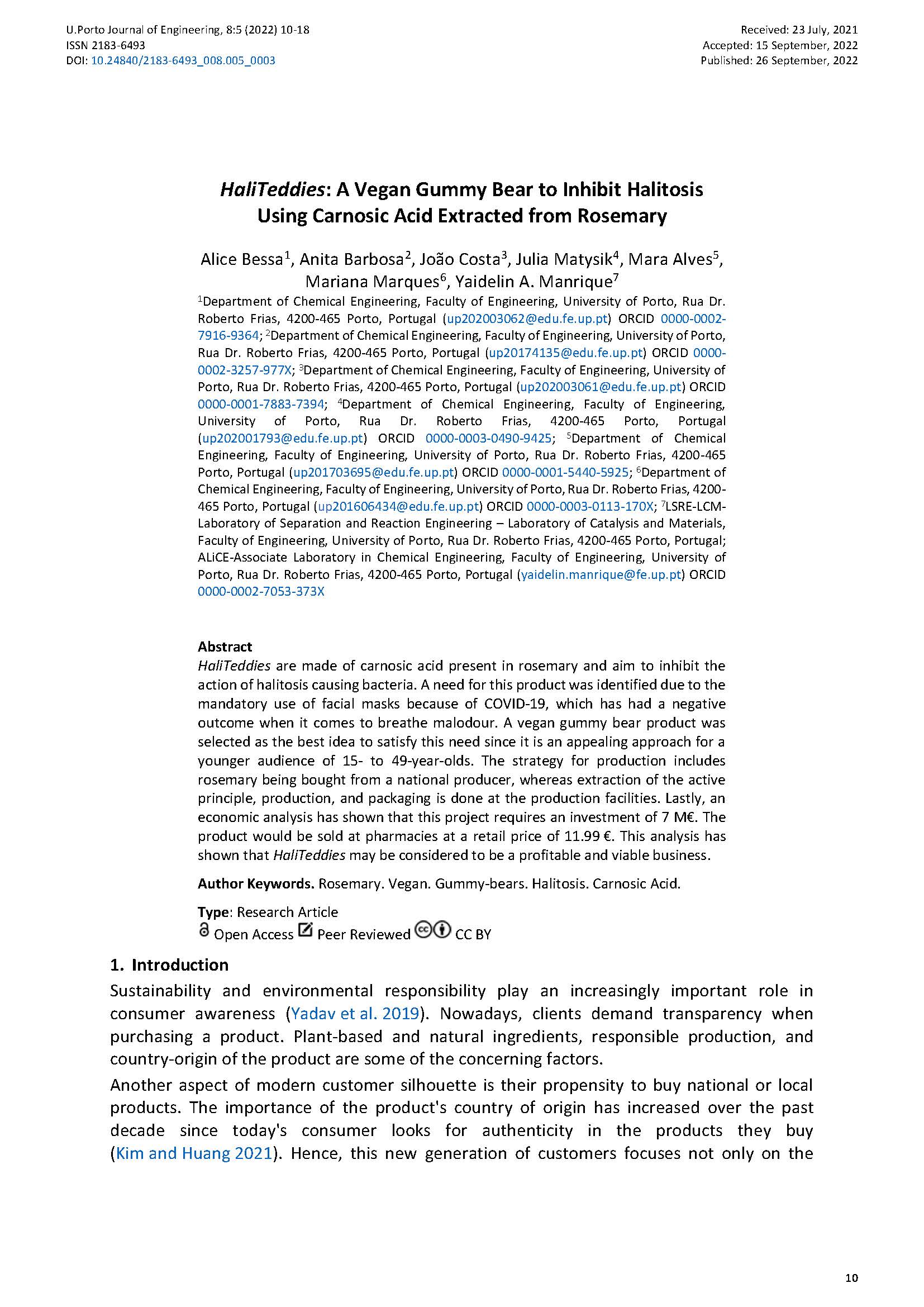HaliTeddies A Vegan Gummy Bear to Inhibit Halitosis Using Carnosic Acid Extracted from Rosemary
Main Article Content
Abstract
HaliTeddies are made of carnosic acid present in rosemary and aim to inhibit the action of halitosis causing bacteria. A need for this product was identified due to the mandatory use of facial masks because of COVID-19, which has had a negative outcome when it comes to breathe malodour. A vegan gummy bear product was selected as the best idea to satisfy this need since it is an appealing approach for a younger audience of 15- to 49-year-olds. The strategy for production includes rosemary being bought from a national producer, whereas extraction of the active principle, production, and packaging is done at the production facilities. Lastly, an economic analysis has shown that this project requires an investment of 7 M€. The product would be sold at pharmacies at a retail price of 11.99 €. This analysis has shown that HaliTeddies may be considered to be a profitable and viable business.
Downloads
Article Details

This work is licensed under a Creative Commons Attribution 4.0 International License.
Authors who publish with this journal agree to the following terms:
- Authors retain copyright and grant the journal right of first publication with the work simultaneously licensed under a Creative Commons Attribution License that allows others to share the work with an acknowledgement of the work's authorship and initial publication in this journal.
- Authors grant the journal the rights to provide the article in all forms and media so the article can be used on the latest technology even after publication and ensure its long-term preservation.
- Authors are able to enter into separate, additional contractual arrangements for the non-exclusive distribution of the journal's published version of the work (e.g., post it to an institutional repository or publish it in a book), with an acknowledgement of its initial publication in this journal.
- Authors are permitted and encouraged to post their work online (e.g., in institutional repositories or on their website) prior to and during the submission process, as it can lead to productive exchanges, as well as earlier and greater citation of published work (See The Effect of Open Access).

